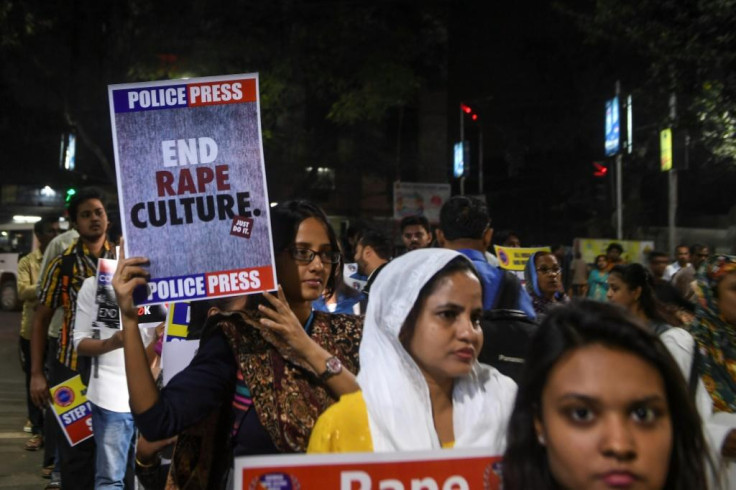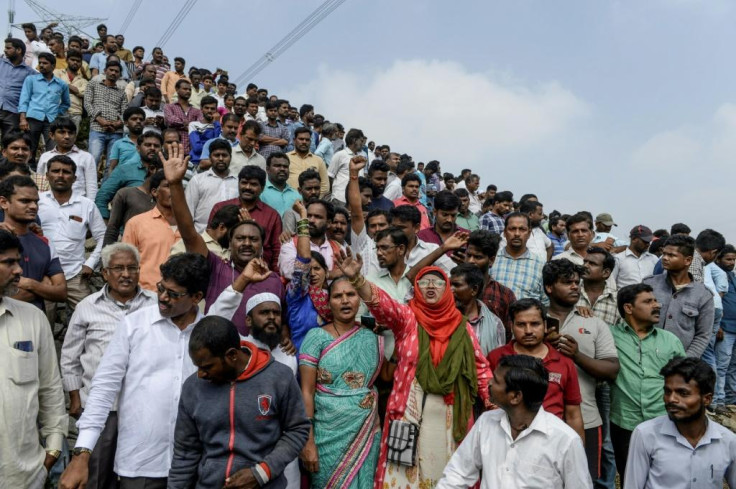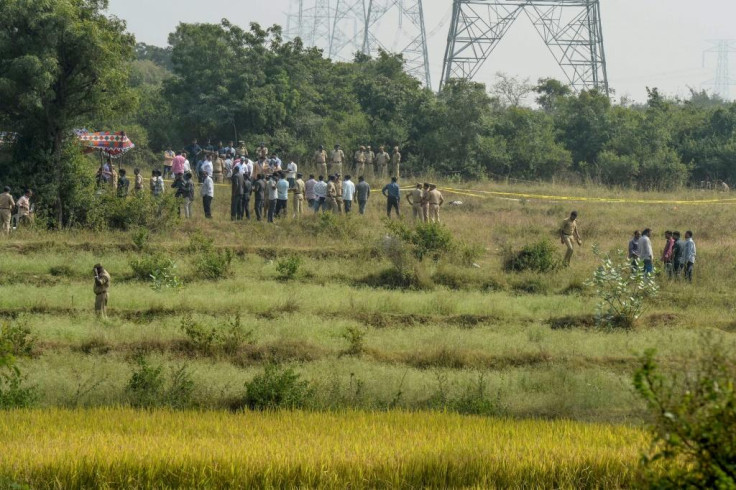Indian Police kill rape-murder suspects, sparking celebrations
Many social media users, including politicians and celebrities, hailed police.
Indian police on Friday shot dead four detained gang-rape and murder suspects as they were re-enacting their alleged crime, prompting celebrations but also accusations of extrajudicial killings.
The men, who had been in custody for a week over the latest gruesome case of violence against women to shock India, were shot in the early morning as they tried to escape during the staged re-enactment in Hyderabad, police said.
"They were killed in crossfire. They tried to snatch weapons from the guards but were shot dead," deputy police commissioner in the southern city Prakash Reddy told AFP.

The four were accused of gang-raping and murdering a 27-year-old veterinary doctor before setting fire to her body with petrol underneath an isolated bridge late on November 27.
The woman had phoned her sister saying she was scared of the men before her phone went dead. She said police did not take her seriously when she said her sister was missing.
Like in the infamous 2012 rape and murder of a woman on a Delhi bus, the case sparked demonstrations and calls for swift and tough justice, with social media swamped with demands for them to be put to death.
Shortly after their arrest hundreds of protesters also tried to storm the Hyderabad police station where the four accused were held.

At one demonstration in Delhi, some women wielded swords while in parliament one lawmaker called for the men to be "lynched" and another for rapists to be castrated.
But rights activists were aghast -- police in India are often accused of using extrajudicial killings to bypass the legal process, often as a cover-up in botched investigations or to pacify public anger.

More than 33,000 rapes were reported in India in 2017, according to the latest government figures, but vast numbers go unreported, experts say, with just 32 percent of cases ending in convictions.
A huge backlog of cases in the highly inefficient Indian criminal justice means that many victims wait years for their attackers to be convicted.
India's last execution was in 2015 when Yakub Memon, convicted of financing bombings in Mumbai in 1993, was hanged. The men behind the 2012 Delhi bus case remain on death row.
Several hundred people flocked to the scene of the men's deaths on Friday, setting off firecrackers to celebrate and showering police with flower petals.

The victim's sister also welcomed the killings.
"I am happy the four accused have been killed in an encounter. This incident will set an example. I thank the police and media for their support," the sister told local television station.
Women in technology hub Hyderabad, home to Google, Apple and Microsoft, distributed sweets and tied Hindu ritual threads on the wrists of policemen to thank them.
Many social media users, including politicians and celebrities, hailed police.
"Great work #hyderabadpolice ..we salute u," top badminton player Saina Nehwal tweeted.
"Let all know this is the country where good will always prevail over evil," a former minister and current MP from Prime Minister Narendra Modi's party wrote on Twitter.
But lawyer and activist Vrinda Grover told AFP the killings were "absolutely unacceptable".
"There must be accountability of the police. Instead of investigation and prosecution the state is committing murders to distract public and avoid accountability," she said.
India's former federal minister for women and child developement, Maneka Gandhi termed the incident as dangerous, saying killings cannot be an alternative to the process of law.
"They would have anyway got hanging for their heinous crime, but you can't just pick up guns and kill people because you want to. Because law is tardy, you can't kill people. What has happened is dangerous," Gandhi told reporters.
"To appease public rage over state failures against sexual assault, Indian authorities commit another violation," tweeted Meenakshi Ganguly, South Asia director for Human Rights Watch.
"This is murder in cold blood. Fake encounter is not the solution, reforming criminal justice system is," Utsav Bains, a Supreme Court lawyer, told AFP.
"Now no one will ever know who really raped and murdered the Hyderabad woman."
Copyright AFP. All rights reserved.
© Copyright IBTimes 2025. All rights reserved.





















